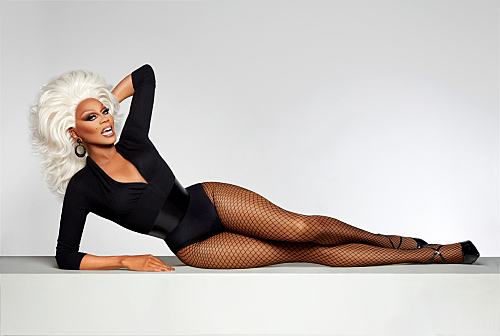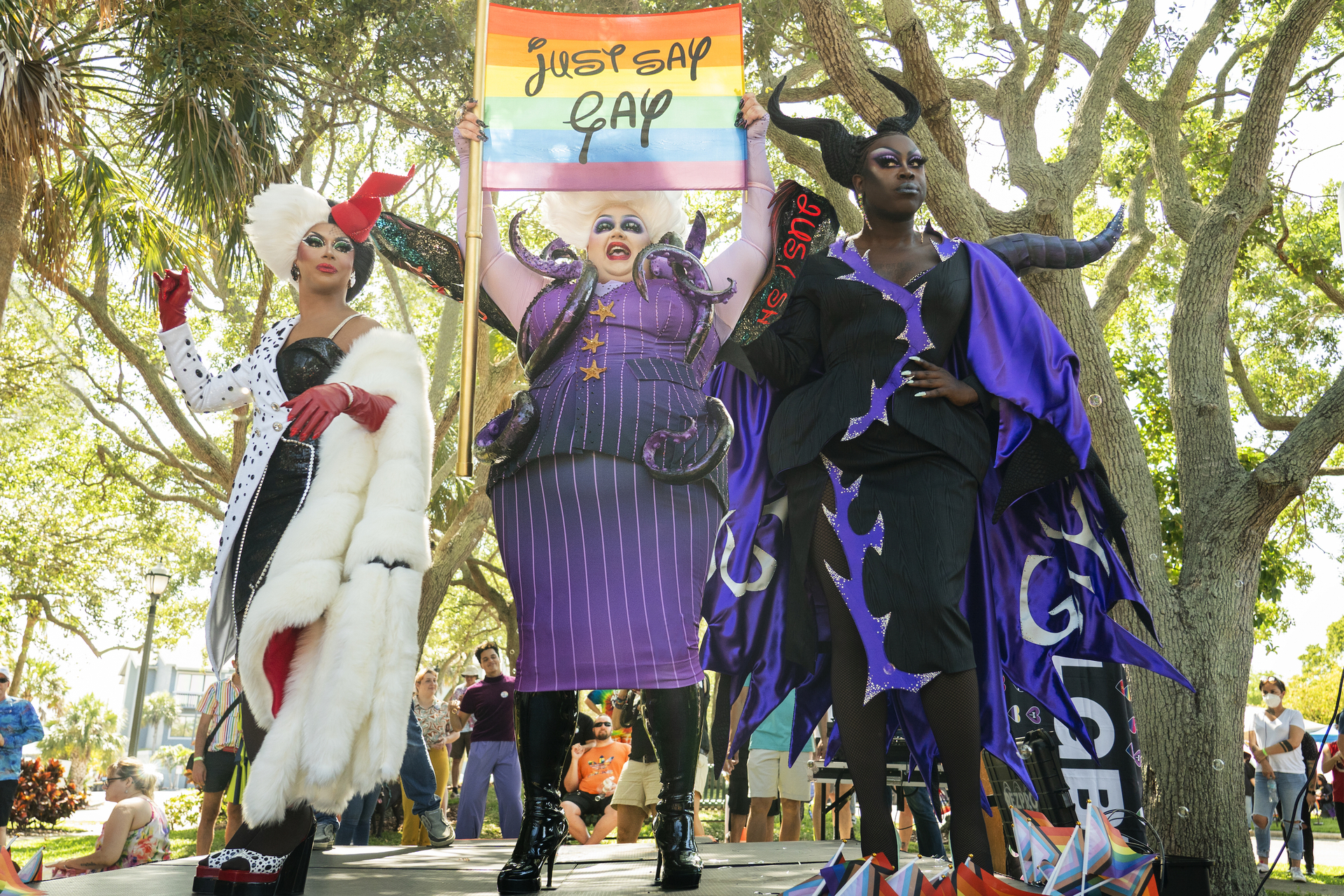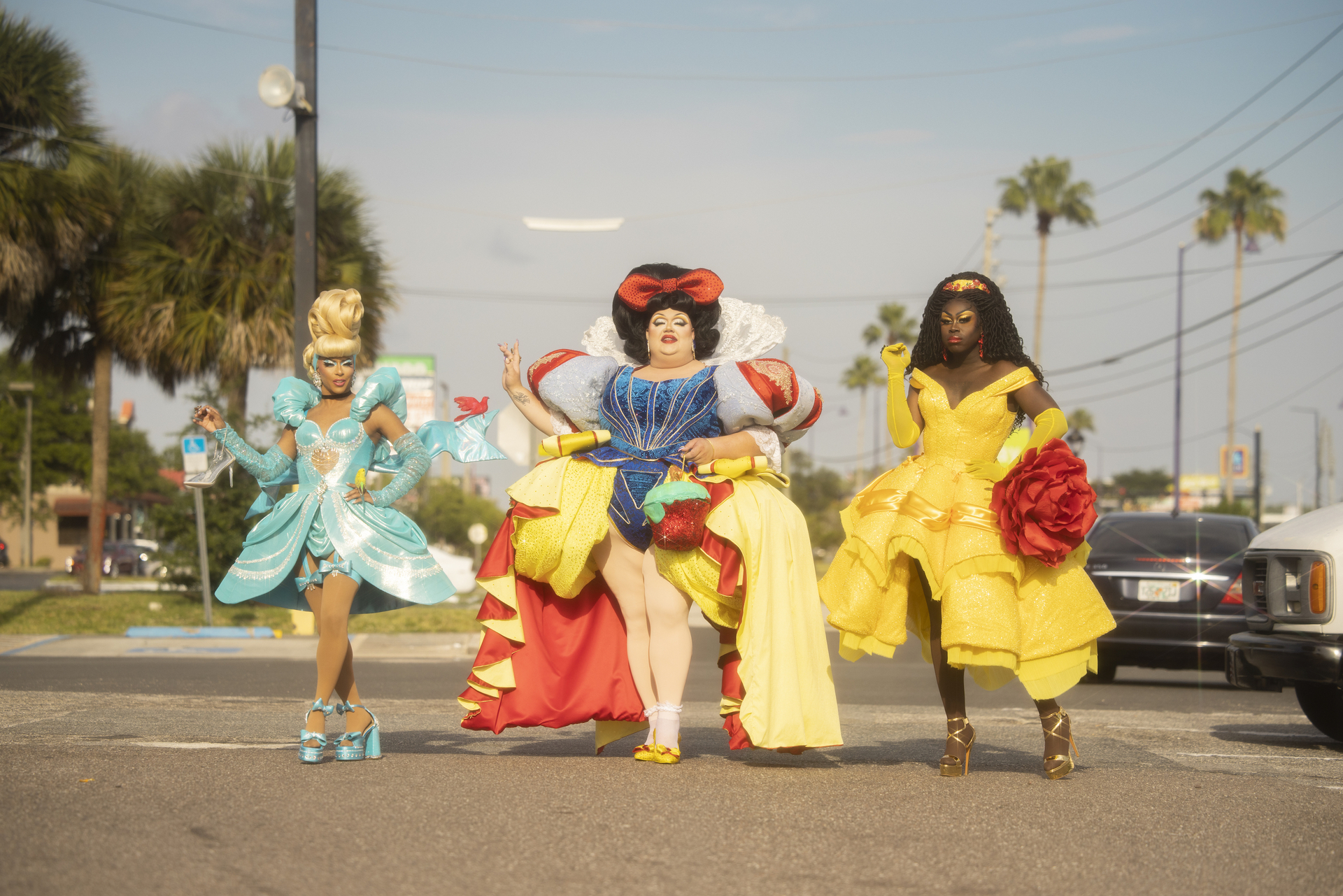
Series featuring drag queens and drag shows have an elevated presence on TV. Season two of Queen of the Universe debuted on Paramount Plus March 31, and April 14 sees the season 15 winner of RuPaul’s Drag Race crowned on MTV. RuPaul’s Drag Race has also spawned a number of spinoffs.
Season three of We’re Here, the unscripted HBO show that sees drag queens venture to smallish towns across America and put on a lavish drag production there, premiered November 25.
As these shows flourish, so too does anti-drag legislation in a number of U.S. states. On March 2, Tennessee Gov. Bill Lee signed a bill into law that restricts adult cabaret performances in public or in the presence of children, and also bans such gatherings within 1,000 feet of schools, parks and places of worship. (A federal judge blocked the law hours before it was set to go into effect, siding with a group that filed a lawsuit claiming the law violates the First Amendment.)
Similar bills are in the works in as many as 14 other states, reports Time, including Kentucky, Texas and Oklahoma.
It’s “an entirely different universe” for drag participants and fans than it was when We’re Here launched in 2020, said co-creator Stephen Warren. “When we created the show, we were living in a world where it felt like progress was being made,” he said. These days, “Homophobia, transphobia, drag phobia — everything is more intense than it ever was. It’s a very different world.”
RuPaul At the Center of It All
There is considerable demand for the various drag-themed shows. Linda Ong, founder and CEO of consultancy Cultique, noted how RuPaul’s Drag Race launched on Logo in 2009, then shifted to VH1 in 2017 and ended up on MTV for season 15, which began in January. “It has migrated through growing popularity,” she said. “Logo was a niche play, VH1 was less niche and now MTV.”
All are part of Paramount Global. Drag Race’s progression to bigger, broader networks “is a clear sign of drag culture’s compatibility with the industrial logics of the modern television industry,” Myles McNutt, Old Dominion University associate professor of communication, said.

When We’re Here premiered, AV Club said the unscripted show “charms with personality, stage presence, and a little small-town magic.” Season three saw Bob the Drag Queen, Eureka O’Hara and Shangela put on their show in Granbury, Texas; St. George, Utah; Brevard County, Florida; Jackson, Mississippi; and Sussex, New Jersey, inspiring “drag daughters” in these towns to express their true selves in front of their families, friends and colleagues.
Warren said politicians pushing the anti-drag legislation want to stress how they, and their constituents, are much different than the performers on the drag stage. We’re Here deploys a different approach. “We try to show the opposite — we are the same,” he said. “They say, we’re not the same, we’re better.”
Queen of the Universe, hosted by Graham Norton and executive-produced by RuPaul, follows the world’s most talented drag queens as they battle it out with musical performances for the title, and countries go head-to-head as they spotlight their top talent. Judges are Mel B, Michelle Visage, Vanessa Williams and Trixie Mattel.
RuPaul’s Drag Race spinoffs have included RuPaul’s Drag U on Logo, RuPaul’s Drag Race All Stars on Logo and then VH1, and RuPaul’s Secret Celebrity Drag Race on VH1.
Outside the world of drag competitions, RuPaul Charles also hosts CBS’s prime game show Lingo. RuPaul was not available for comment.
More to Come?
Time will tell if we’ve hit the high-water mark for drag-themed shows. Ong suspects the success of the existing shows will prompt other studios and producers to create their own and the anti-drag legislation will spark greater viewer interest. She added that the bills and laws make drag more of a “flashpoint for culture.”
“There are so many new flashpoints people are sensitive to now,” she said. “It creates an urgency for these voices to be represented and seen.”
The various drag shows both entertain and educate viewers, according to McNutt, and their role in educating viewers is growing. “It's important to understand that while these shows embrace the high drama and elaborate performance that define drag culture, they often take on consciously educational frameworks in acknowledgment of the fact that some viewers tuning in may not have a nuanced understanding of what drag is,” he said. “The burden of responsibility on these shows is increasing amidst ongoing legislation that seeks to outlaw and vilify drag and drag queens, but these shows have always understood drag through the lens of inclusion and understanding, making it a genre well-suited to rising to the occasion amidst the drama.”

Over the course of its three seasons, We’re Here on HBO has brought drag out of its liberal enclaves on the coasts, and shown the humanity behind those participating in the drag shows. Warren said drag has been around since Shakespeare, and is as American as apple pie.
Co-creator Johnnie Ingram said such shows encourage dueling parties — be they family members or political adversaries — to sit and discuss their differences. “The only way to really bridge the gap is to sit with someone and have a conversation and talk through your differences,” he said. “We’re actually a lot more alike than we think.”
Asked what the We’re Here creators might say to a politician looking to outlaw such shows, Warren responded, “Watch a few episodes of our show and call me after. I’d love to talk.”




.jpg?w=600)


